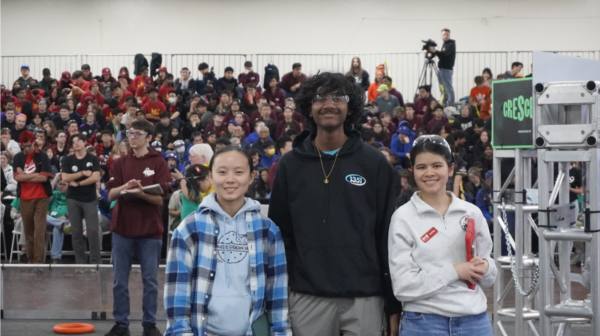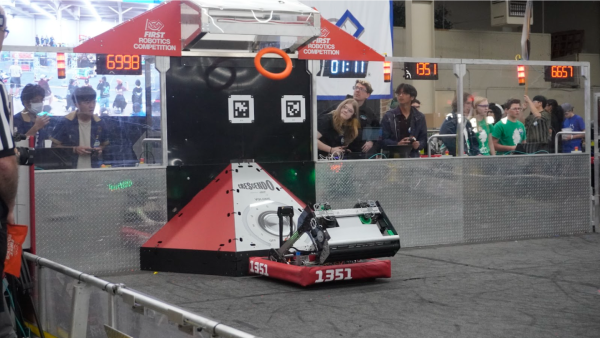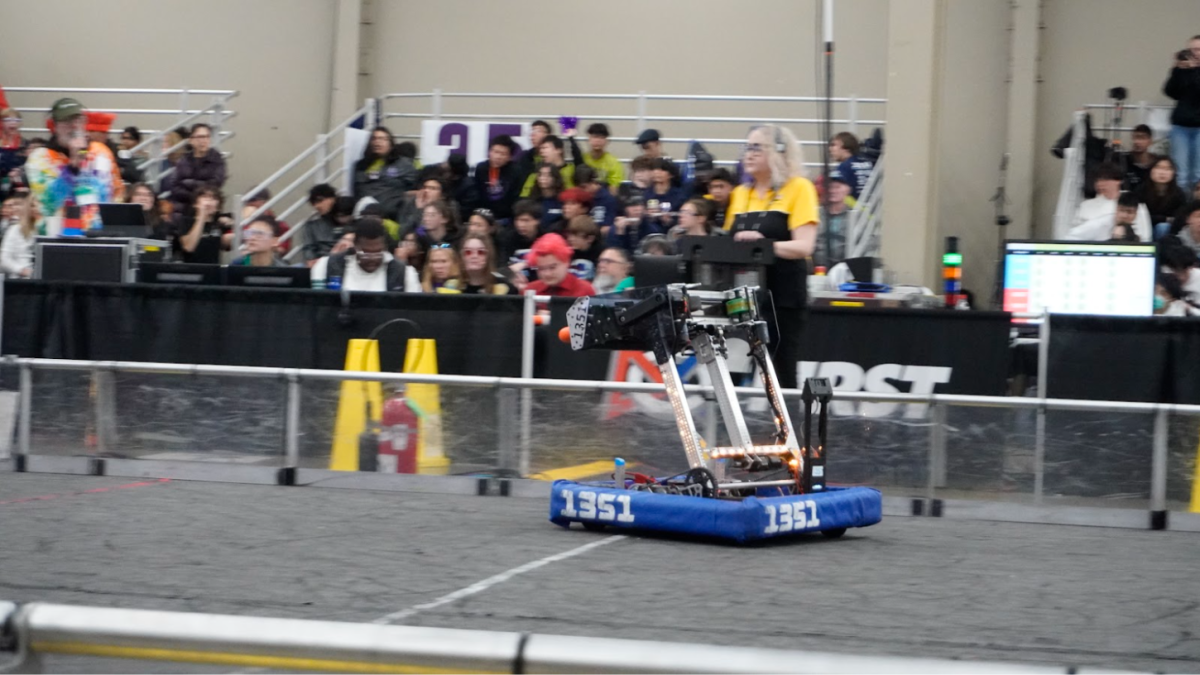In the FIRST Robotics Competition, each team must not only optimize their own robot but synergize with two other teams to tackle the challenges of a sports-inspired game. Unlike sports, however, the game changes each year, requiring new approaches and innovations. In this year’s game, “Crescendo,” teams were tasked with building a bot that could launch foam rings, called “notes,” into various goals.
Robots must run autonomously in the first part of a match and are human-controlled in the latter. Teams can aim for a low goal “amp” or high goal “speaker” and convert low-goal points into temporary boosts for bonus high-goal points. Teams can score further by having their robot climb and hang off a centerfield chain before the match ends and score a final goal “trap” that can only be accessed by opening its cover flap while climbing.
Mitty’s team, branded “TKO,” carefully approached these objectives by building a robot with a hybrid arm that could both pick up and launch the foam discs at various goals depending on how it was angled. Notably, they pulled everything together to meet the stricter deadlines imposed by competing at a first-week event: Silicon Valley Regional.

Ranking 11th in terms of points scored, TKO succeeded in getting past qualifications as first pick on the #7 seed alliance in elimination matches. In a notable victory, their alliance beat the #2 seed. Junior Corina Gaska was awarded as a finalist for the Dean’s List award for outstanding service to the team and the educative mission of FRC, and was invited to the world championships.
Two weeks later, the team competed at the Central Valley Regional in Fresno. In the time between their first competition, members performed maintenance and redesigned mechanisms in response to performance on the field, which included a new and improved arm to intake and shoot pieces. Other changes included updating code to speed up systems and computer vision targeting, along with reorganizing wiring. As a result, the team was able to improve their niche in the event as a robot that consistently scored in the amp, which boosted their partners when scoring into the main goal.
During competition, students’ roles on and off the field remained similar; those who built one subsystem on the robot would service the respective parts. However, some students took on other roles that shine only in the light of competition. A group composed of seniors Kazu Pang, Divyansh Agarwal, Henry Amrhein and junior Ava Wood was responsible for operating the team’s robot. Meanwhile, student scouts, led by junior Nishant Perla, were responsible for collecting data and planning strategy using an app newly developed by the team’s programmers.

Though the stakes were high, many members of TKO found the final in-season competition to be a lot of fun. “Getting picked for an alliance and going into the knockout rounds was a high,” Mentor Ms. Stephanie Federwisch said. The team also considers their definition of success to be more than just objective scores. President Henry Nelson mentions that “it’s easy to get caught up in ranking, but framing the team’s success in a season based on specific goals set at the beginning of the season is much better for longevity.”
Some of the goals achieved by the team included eliminating major robot breakdowns, improving maintenance, integrating software for data analysis, and networking more with the community. A notable development was encouraging engineering-focused members to contribute to producing media, distributing promotional materials, and talking with other teams more. One unique project was the production of trading cards, which encouraged other teams to distribute their own at competitions.
These students’ robotics experience is more than just robots; it is an application of STEM subjects that teaches project management, writing, and teamwork. From hearing the season’s game being announced at kickoff, working long hours through the build season, and developing strategies to sharpen their competitive edge, TKO had a memorable, productive, and ultimately enlightening season. Mentor Mr. Cody King says: “The students did a great job of getting designs finished early and allowing time to test and reiterate… I am proud of how inclusive they have been with each other, so I look forward to that continuing next year.”


